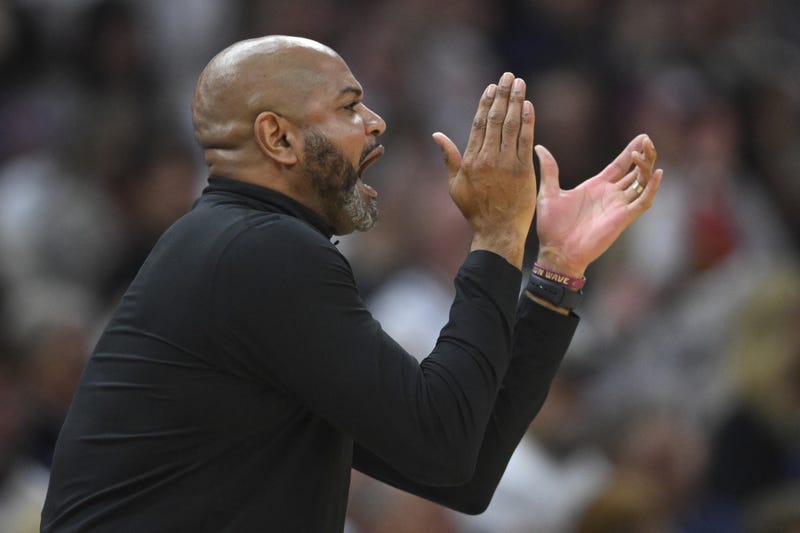
Once upon a time, the Pistons were one of the best defensive teams in the NBA. Once upon a time, they won games. And their new head coach is well aware: they won't stop losing until they stop leaking points.
"If you don’t have a strong defensive foundation, your team is going to struggle to take the steps and build in the direction you want to go," said J.B. Bickerstaff. "You can talk about offense all you want, but when you look at the elite teams in this league, they have two-way players and guys who take pride in defending the basketball."
Bickerstaff knows of what he speaks. He took the Cavaliers to the playoffs the past two years by molding them into one of the best defensive teams in the NBA. Cleveland ranked seventh, first and fifth defensively in the last three seasons and was 40 games over .500 -- while ranking 20th, 25th and 25th offensively. It's not the formula for every team, but it worked for the Cavs. And it can work, again, for the Pistons.
"If you can defend the basketball, you’ll give yourself a chance at the end of games to win," Bickerstaff said. "So our focus will be to start defensively building a great foundation."
He said the Pistons already have guys who can be "elite individual defenders," like fifth overall picks Ausar Thompson and Ron Holland II. And "switchable" big men like Jalen Duren and Isaiah Stewart who are athletic enough to guard the perimeter. Those two, said Bickerstaff, gave the Cavs problems last year "switching on our smalls and making them play iso basketball."
"When you put guys like that in a great system where everybody’s protecting one another and you got high-level intelligence -- and I think we have that -- you can be the defensive team that we want to be," he said.
The Pistons ranked 26th, 27th and 22nd in defense the last three seasons. Former GM Troy Weaver talked often about restoring the team's defensive pride, but never delivered. The last Pistons team that made the playoffs, albeit while getting swept by the Bucks, ranked seventh defensively -- and 25th offensively. Their last playoff team before that had a similar profile.
In addition to needing instinctive defenders, Bickerstaff said that "system matters also."
"There may be guys who aren’t great individual defenders, but they can become great team defenders," he said. "I think teaching it and taking time matters. And the reps that you get at it matters. For us, we’re going to spend a ton of time repping things out, trying to keep it as simple and clean as we can to give our guys the opportunity to get great at doing the same thing over and over again. And through that, they’ll improve."
There is such a thing, Bickerstaff noted, as "defensive development."
"Most of the time, people only care about the offensive development. They spend all their time working on step-backs, between the legs and all that, but they don’t spend any time on rotations and being in the proper spots. That’s some of the things we’re really hammering," he said.
In the process, Bickerstaff hopes to reconnect Detroit to the team it once knew.
"We know the history of the Detroit Pistons and the Bad Boys and the rough-and-rugged style they liked to play," he said. "And when they were at their best with the Rasheed Wallace and Chauncey Billups crew, how great they were defensively, how physical they were, how they challenged people, how they competed. And it seemed to me, from the outside looking in, that their fans embraced that style of play.
"Obviously the rules are a little bit different now, but I believe that the Detroit fans will love guys who compete their tails off, who are willing to sacrifice their body for the greater good of the team and who play selfless basketball and it’s not just about me-me-me. As we do our work and research, we study a way to connect the team to the fan base and I think that’s where we start. I think we have the pieces here to do that."
